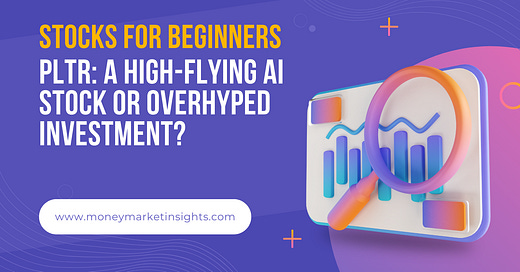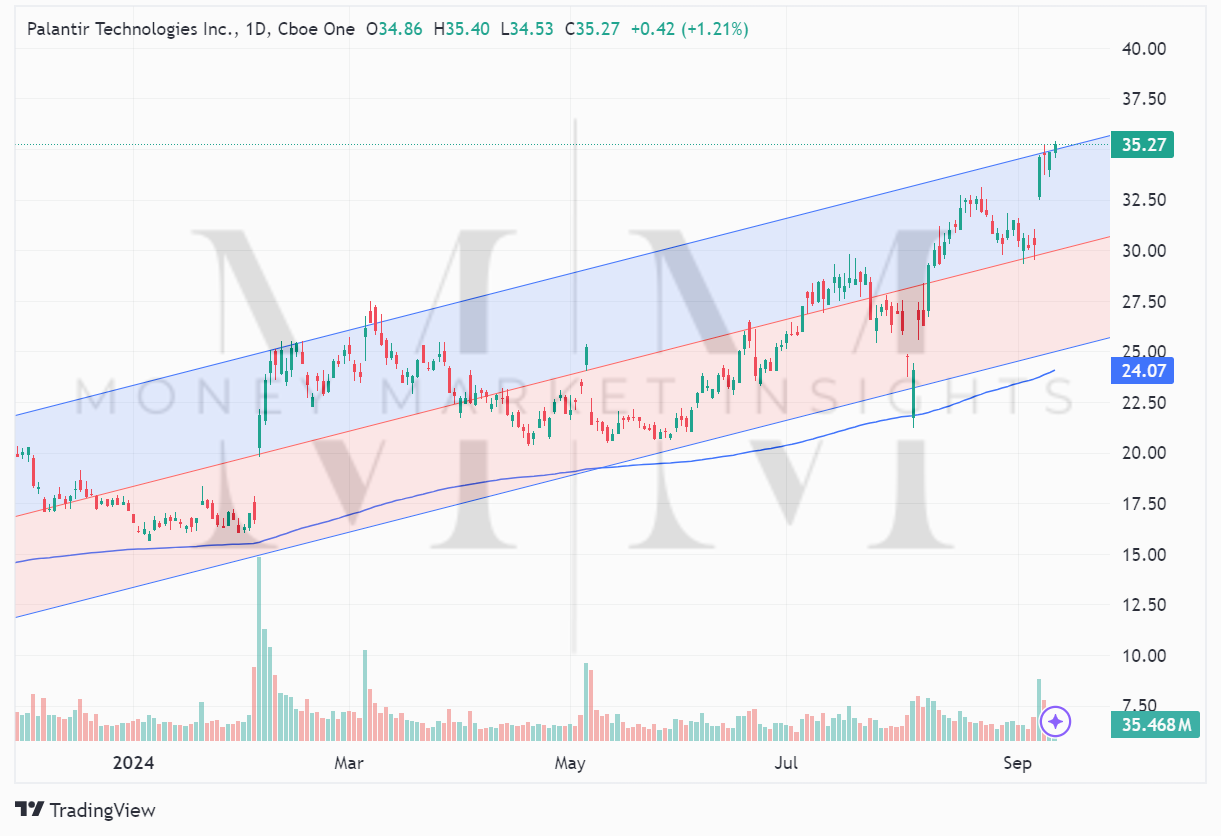Palantir Technologies: A High-Flying AI Stock or Overhyped Investment?
Palantir Technologies (NYSE: PLTR 0.00%↑) has emerged as a leading player in the world of artificial intelligence (AI) stocks.
Its cutting-edge AI software is a key reason why investors have been flocking to it with high hopes. But with great excitement comes great expectations, and there’s concern that Palantir’s stock might not live up to the hype, even if the company itself performs well. So, the question is: Can Palantir meet these lofty expectations, or are investors setting themselves up for disappointment?
Palantir’s AI Software is Just Beginning to Shine
Palantir has been in the AI game for a while, integrating its software with decision-making processes to help organizations make more informed choices. Founded in 2003, the company initially focused on providing software solutions to the government sector, but has since expanded into the commercial market. Palantir's technology is designed to streamline data flows, ensuring decision-makers have access to the best information available.
Palantir’s newest product, the Artificial Intelligence Platform (AIP), pushes this capability even further. AIP provides developers with tools to embed AI deeply within business operations—whether it's to enhance specific apps or drive entire workflows. This is a big deal because many businesses today use AI only in a limited, supplemental way.
So far, AIP has been a hit in the U.S. commercial market. In the second quarter, Palantir's revenue from U.S. commercial clients jumped by 55% to $159 million. Even more impressive, the number of U.S. commercial customers increased by 83% from a year ago, reaching 295.
However, Palantir’s software isn’t for everyone. With an estimated annual contract value of $2.16 million, it’s a costly solution that limits its potential customer base. Still, this is just one part of the business. Overall, Palantir’s total revenue for the second quarter was $678 million, up 27% from last year. The company also posted record profit margins, with earnings per share of $0.06.
Despite the Success, the Stock Could Still Struggle
Even with strong business metrics, Palantir’s stock may not be a sure bet. The company is still on its way to maximizing profitability, which means that traditional valuation methods, like looking at its price compared to earnings, may not tell the full story. Right now, Palantir trades at a very high 86 times its expected future earnings, which makes it seem expensive compared to other software companies.
Instead, a more meaningful way to look at Palantir is to imagine what its valuation could be if it achieved profit margins similar to those of more established software companies like Adobe, which has an average profit margin of 30%. If Palantir could grow its revenue at a steady rate of 27% per year for the next five years, it would reach around $8.19 billion in annual revenue. With a 30% profit margin, that would translate into $2.46 billion in net income.
Comparing this potential future with its current market valuation, Palantir would trade at around 27.8 times its expected five-year forward earnings. For context, Adobe currently trades at about 31.4 times its expected forward earnings. This means that Palantir would have to outperform current expectations and achieve top-tier profit margins for five years straight just to be valued similarly to a well-established company like Adobe.
Is Palantir a Good Buy Right Now?
Given these considerations, Palantir’s stock comes with a lot of built-in expectations. While the company itself may continue to grow and succeed, its stock price might not follow the same path unless Palantir consistently beats market expectations and achieves industry-leading profitability. For some investors, this makes Palantir a risky bet, especially when there are other stocks available at more reasonable valuations. While Palantir's future is promising, its stock price may already reflect much of that potential, making it less appealing for those looking for safer or more reasonably priced investments.
*Disclaimer: Not Financial Advice. Investors should conduct thorough research and seek professional advice before making any investment decisions.






